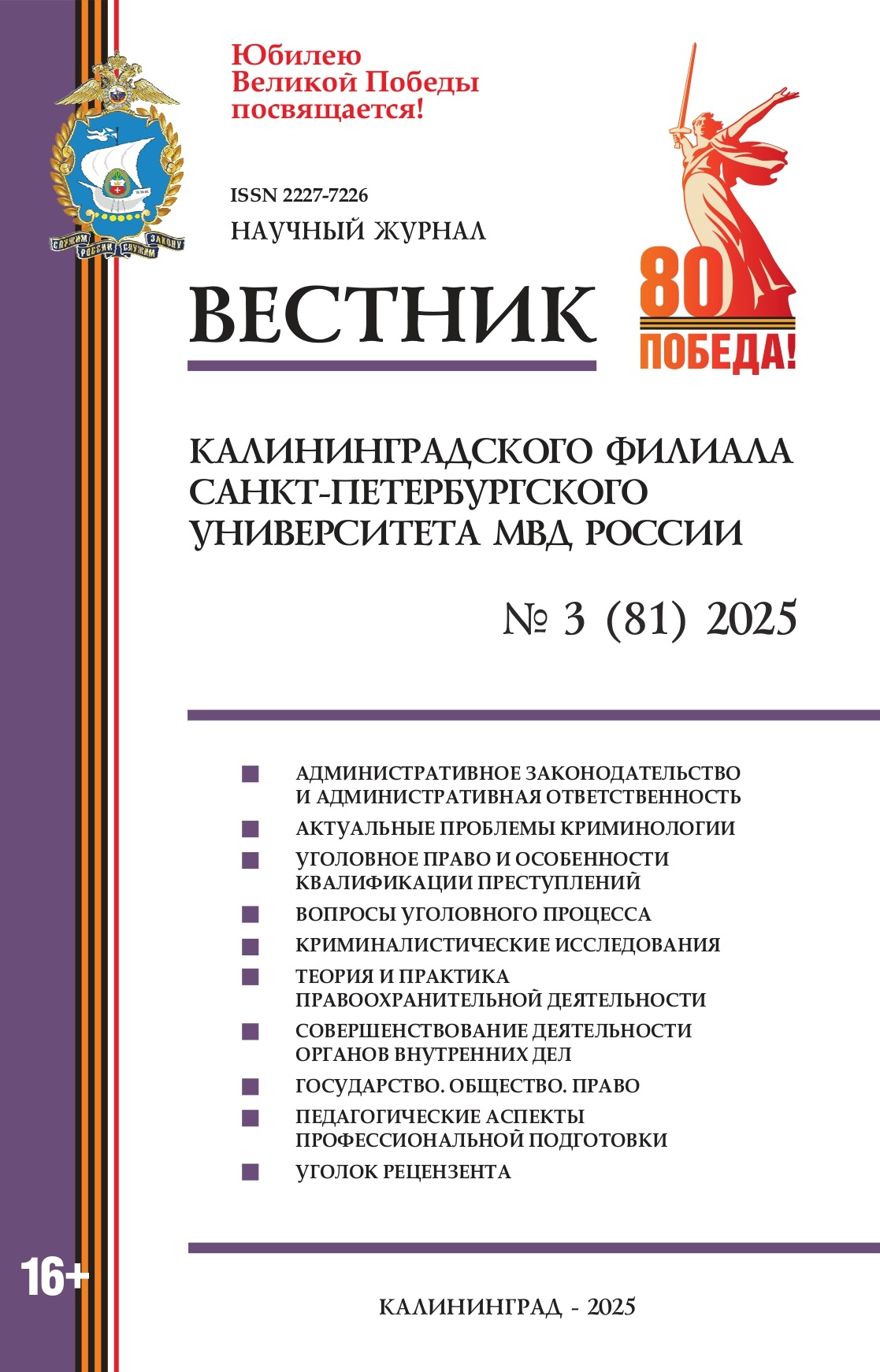from 01.01.2024 until now
Volgograd, Volgograd, Russian Federation
Introduction. In the course of the study, the results of which are presented in this article, a historical and legal analysis of the origin of operational investigative activity (hereinafter referred to as OIA) at the pre-state stage of society development was conducted. The existing scientific views on the genesis of OIA are considered, the need to expand the paradigm of its history beyond the state and legal framework is substantiated. Methods. The study was based on paradigmatic and historical-comparative methods, involving the analysis of doctrinal sources, norms of ancient law and social institutions of primitive society. The use of these methods made it possible to compare modern principles of security with their prehistoric prototypes. Results. The activity of secretly learning about criminal and socially dangerous acts of members of society has come a long way of development – from family-community and religious supervision to institutionalized state OIA of internal affairs agencies. The prototype of OIA were universal forms of human activity that arose spontaneously in order to satisfy the vital needs of self-preservation of both an individual and a team. In pre-state conditions, the functions of hidden control were performed by older generations, priests, and bearers of community power, relying on the power of traditions and beliefs. They carried out secret surveillance and collected information about dangerous plans and actions in order to prevent harm to the community. Subsequently, these functions were gradually reworked and given first to national religious institutions (church control and confession), and then to state law enforcement agencies.
Operational investigative activities, history of operational investigative activities, pre-state period, primitive society, covert security, covert surveillance, informant work







